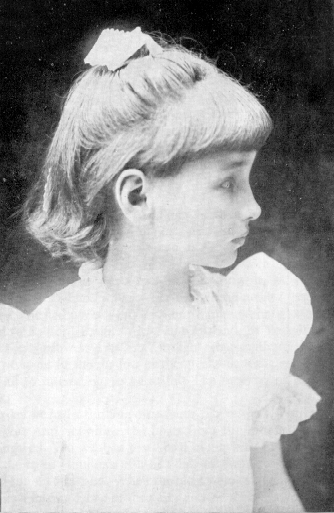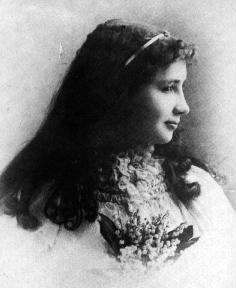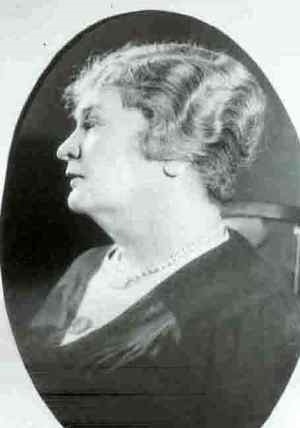 |
| Helen as a little girl. (http://www.hermes-press.com/helen1.jpg) |
A hero is someone that makes a difference in society and contributes something that benefits an animal or a person. Anyone can be a hero though. Helen Keller is a true hero. She not only made a difference in society and contributed something, but she inspired people and overcame many obstacles. Blind people have a sense of seeing. The sounds or vibration tells them what is going on around them. She tried to be the finest she could be and was rewarded, most of the time.
“Just because a man lacks the use of his eyes doesn’t mean he lacks vision.” –Stevie Wonder
 |
| Helen Keller as a teenager. (http://www.sorbie.net/kelleryoungcrop.jpg) |
Helen grew up in a normal 1800's neighborhood. People named their houses in the 1800s. Helen’s house was named Ivy Green. Most people had little or no money. Helen’s father, Captain Arthur A. Keller, had two boys, twenty-two-year-old James and fifteen-year-old Simpson, from his first marriage with Sarah, who died a year before Captain Keller’s second marriage. Helen’s mother, Kate Adams Keller, grew up in Memphis and knew nothing about running a plantation or cooking. Rumor says, she married Captain Keller in a fit of anger over another suitor. In February 1882, at nineteen months old, Helen became ill. She lost her hearing in the midst of her illness and her sight in the days following her recovery. Helen had her own signs that were used for communication, like her sign for mother was stroking her cheek and her sign for father was to make spectacles, or glasses, with her fingers against her eyes. Helen learned quickly that she was different and how to deal with her problems.
Helen Keller contributed a vast deal during her lifetime. Albeit she was both blind and deaf, at age ten, she created organizations and led fundraisers helping kids that were blind, deaf, or both blind and deaf. She traveled all over the country with her beloved teacher, Annie Sullivan. She told about her life. How her life was before and after she met Annie and the troubles she had with her blindness and deafness. How she became poor, but still tried hard to find work and encourage others. She told about everything up to that day. Helen Keller is an absolute inspiration.
Helen faced many obstacles in her life. The overall obstacle was the illness that caused her to lose her hearing. And then, slowly after that, she began to lose her sight as well. Before she became ill, she was able to see anything, like needles or buttons that no one else could see. She faced poverty everyday, although she was a worldwide celebrity. Miss Keller struggled to get to college and make friends. No one knew the manual alphabet or how to finger-spell so she had to cope with what she had. Helen had to deal with the loss of both her parents, Annie, and Polly, a maid who took over the role as “Teacher” after Annie’s death. No matter who lives the life, there will always be problems.
 |
| Annie Sullivan was like Helen's second mother. (anniesullivan.org) |
Helen Keller seemed to be a nice person. She tried her best to be happy, even when no one else was. At a young age, Helen didn’t have that happiness. The frustration of her blindness and deafness made her angry at times. She got to the point where she would throw things. Her mood changed just after she met Annie. Annie Sullivan taught Helen as much as she could. Annie was like a second mother to Helen, a mother that depended on her child just as much as her child depended on her. Over the years, Helen and Annie became as close as two can be.
Helen was a gifted person. She was able to overcome many obstacles, inspire, and contribute, all at the same time! She overcame her illness. She inspired people with her amazing speeches, and she contributed money from fundraisers for people in the hospital, whether they were blind, deaf, or just there, for whatever medical reason. Helen also contributed amazing saying like, “We differ, blind and seeing, one from another, not in our senses, but in the use we make of them, in the imagination and courage with which we seek the wisdom beyond our senses,” and, “the only lightness dark is the night of ignorance and insensibility.” She also said, “It is the secret inner will that controls one’s fate.” Helen’s lesson is obvious: Try, try, and try again.
Page created on 2/5/2010 12:00:00 AM
Last edited 2/5/2010 12:00:00 AM
